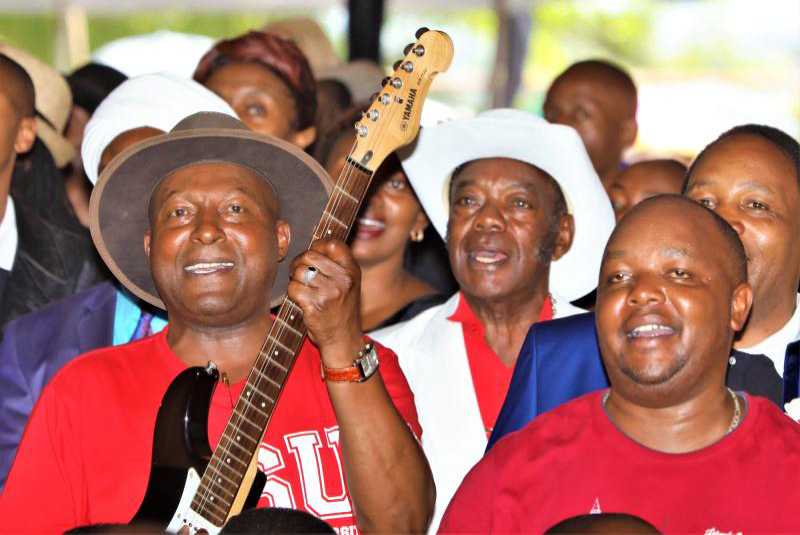×
The Standard e-Paper
Smart Minds Choose Us

A section of Gikuyu musicians sing during the funeral service for late Gikuyu Benga maestro Joseph Kamaru held at Muthithi primary school in Murang'a County, October 11, 2018. [Photo: Mose Sammy, Standard]
Joseph Kamaru Macharia, the iconic Gikuyu benga musician, was yesterday laid to rest at his home in Heho village, Murang’a County.